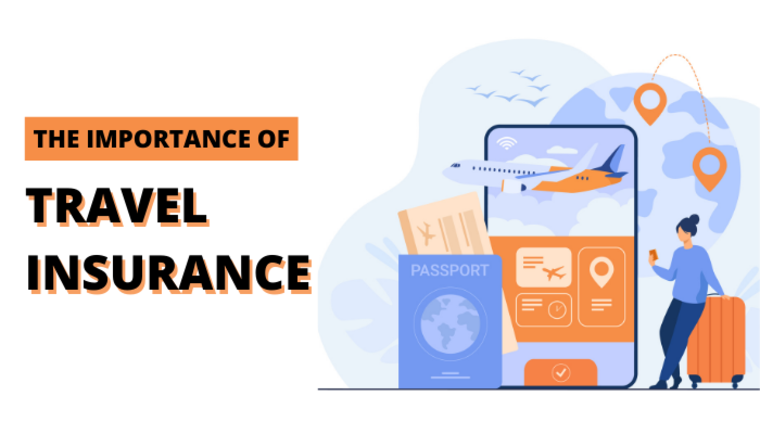Traveling is an adventure filled with excitement and discovery. However, unforeseen events can turn a dream vacation into a nightmare. From medical emergencies to flight cancellations, travel mishaps can be costly and stressful. Travel insurance is designed to mitigate these risks, providing financial protection and peace of mind for travelers. This comprehensive guide explores the importance of travel insurance, covering its benefits, types, and how to choose the right policy for your trip.
Introduction to Travel Insurance
Travel insurance is a specialized form of insurance designed to protect travelers against financial losses incurred while traveling abroad. It covers a range of risks, including medical expenses, trip cancellation, lost luggage, and emergency evacuation. Despite its importance, many travelers overlook the need for travel insurance, assuming that their health insurance or credit card coverage will suffice. However, these alternatives often fall short in providing comprehensive protection for international travelers.
Why Travel Insurance Matters
- Financial Protection Against Unexpected Expenses
- Medical Emergencies: Travel insurance covers unexpected medical expenses, including hospital stays, surgeries, and emergency transportation.
- Trip Cancellation and Interruption Coverage
- Travel insurance reimburses prepaid, non-refundable expenses if your trip is canceled or interrupted due to covered reasons, such as illness, death of a family member, or severe weather.
- Coverage for Lost Luggage and Personal Belongings
- If your luggage is lost or stolen, travel insurance can reimburse you for the loss of personal belongings and the cost of replacing essentials.
- Emergency Evacuation and Repatriation
- In cases of medical emergencies or political instability, travel insurance provides coverage for emergency evacuation and repatriation to your home country.
- 24/7 Assistance Services
- Many travel insurance policies include access to 24/7 assistance services, offering support for lost passports, missed connections, and other travel emergencies.
Types of Travel Insurance
There are several types of travel insurance policies, each catering to different needs and budgets. Understanding the differences can help travelers choose the right coverage for their trip.
- Single-Trip Travel Insurance
- Covers a single trip and is ideal for vacations lasting a few days to a week.
- Annual Travel Insurance
- Provides coverage for unlimited trips within a year, making it suitable for frequent travelers.
- Multi-Trip Travel Insurance
- Similar to annual travel insurance but allows for a fixed number of trips within a year.
- Adventure Sports Travel Insurance
- Designed for travelers participating in extreme sports or activities, offering additional coverage for injuries and accidents related to adventurous activities.
Choosing the Right Travel Insurance Policy
Selecting the right travel insurance policy involves considering several factors:

- Destination and Duration of Trip
- The location and length of your trip can influence the type of coverage you need. For example, traveling to a region known for political unrest may require additional coverage for emergency evacuation.
- Health Conditions
- Pre-existing medical conditions should be disclosed to your insurance provider, as they may affect your coverage and premiums.
- Activities and Adventure Sports
- If you plan to engage in adventure sports or activities, ensure your policy covers these, as they may not be included in standard travel insurance.
- Cost and Coverage Limits
- Compare policies based on cost and the coverage limits for each benefit. Higher premiums may offer broader coverage.
- Reputation and Claims Process
- Research the insurance company’s reputation and read reviews about their claims process. A reputable company with a smooth claims process is crucial for a hassle-free experience.
Claiming Your Travel Insurance Benefits
Understanding how to claim your travel insurance benefits is crucial. Most insurance companies have a dedicated claims department that handles inquiries and processes claims. Here are steps to follow:
- Contact Your Provider Immediately
- Report the incident to your insurance provider as soon as possible. Prompt reporting can expedite the claims process.
- Gather Documentation
- Collect all relevant documents, including receipts, invoices, and any correspondence related to the incident.
- Follow the Claims Procedure
- Follow the instructions provided by your insurance company, which may include filling out forms, submitting documentation, and providing additional information.
- Patience and Persistence
- Understand that the claims process can take time. Be patient and persistent, and communicate with your insurance provider if you encounter delays or issues.
How much travel insurance typically cost
The cost of travel insurance varies widely depending on several factors, including the total cost of the trip, the number of travelers, the destination, and the level of coverage desired. According to research, the average cost of travel insurance ranges from $14 to $765, with the average being approximately $204. However, a more precise estimation suggests that travel insurance typically costs between 3% and 5% of the total trip cost. For instance, for a $5,000 trip, the average travel insurance cost would be around $228, with the range extending from $154 for a basic policy to $437 for a policy with extensive coverage.
READ ALSO: How to Save Money on Your Insurance Premiums 2024

Several factors influence the cost of travel insurance:
- Total Trip Cost: The overall cost of your trip significantly impacts the price of your travel insurance. For example, a $1,000 trip might cost around $61 for travel insurance, whereas a $20,000 trip could cost over $1,200.
- Number of Travelers: The number of people included in the insurance plan affects the rate. Adding more travelers to the policy generally increases the cost, but the increase is relatively minor. For example, the cost difference between a single traveler and a family of four was found to be around $30.
- Age of Travelers: Age is another critical factor, especially for seniors. The average travel insurance cost for someone aged 80 is significantly higher than for a 20-year-old, reflecting the increased risk associated with older age groups.
- Coverage Levels and Destinations: The level of coverage chosen and the destination of the trip also play roles in determining the cost. Travelers heading to areas known for political instability or natural disasters may opt for more comprehensive coverage, which would naturally increase the cost.
Despite the variations in cost, travel insurance is often seen as a worthwhile investment for its ability to provide financial protection against a variety of travel-related risks, including trip cancellations, medical emergencies, lost luggage, and more. When selecting a travel insurance policy, it’s important to carefully consider your individual needs and the specifics of your upcoming trip to ensure you’re adequately covered without overspending.
Types of coverage you should consider when purchasing travel insurance
When purchasing travel insurance, it’s crucial to consider a range of coverage types to ensure you’re adequately protected for your trip. Based on the information provided, here are the key types of coverage you should consider:
1. Trip Cancellation and Interruption Coverage
This coverage reimburses pre-paid travel expenses if you are prevented from taking your trip for a reason covered by your policy. Reasons can include unexpected illness or injury, hospitalization or death of a non-traveling family member, weather or common carrier issues, unforeseen natural disasters, or legal obligations such as jury duty or serving as a witness in court.
2. Travel Medical and Major Medical
Provides protection if you become ill or injured while traveling. Travel medical insurance offers short-term medical coverage, which is essential for covering medical expenses incurred during your trip.
3. Emergency Medical Evacuation

Offers coverage for services such as air evacuation and medical transportation to the nearest adequate medical facility, followed by transportation home if warranted. This is particularly useful if you’re traveling to a rural area without easy access to medical facilities.
4. Accidental Death and Dismemberment
Provides coverage to beneficiaries if you die in an accident on the trip or pays a sum to you if you lose a hand, foot, limb, or eyesight from an accident. Some plans only apply to an accident that occurs on an aircraft.
5. Baggage Loss
Reimburses for loss of baggage or personal items, which can be a significant concern for travelers. This coverage helps replace lost or damaged luggage and personal belongings.
6. Cancel For Any Reason (CFAR) Policies
These policies are more expensive and typically only reimburse you a percentage of your travel costs. The reason for cancellation is not relevant, and there is usually a timeframe for when cancellations are allowed. You must insure all of your pre-paid and non-refundable expenses. CFAR policies are usually added as an extra option in addition to trip cancellation coverage.
Additional Considerations
- 24/7 Emergency Services: Look for policies that include 24/7 emergency services, such as replacing lost passports, cash wire assistance, and rebooking canceled flights.
- Concurrent Insurance Coverage: If you have concurrent insurance coverage, meaning you’re covered under more than one policy, it’s important to understand whether the travel insurance is primary or secondary. Primary coverage reimburses you first without needing to make a claim through another company, while secondary coverage requires you to attempt to file a claim with other coverage first.
- Additional Coverage Options: Depending on your plan or package selected, you may be able to add additional coverage types such as identity theft resolution services, school activity coverage, destination wedding coverage, adventure sports coverage, pet health as a reason for cancellation or delay, hunting or fishing activities as a reason for cancellation or delay, and missed flight connections.
Choosing the right travel insurance policy involves evaluating your specific needs, the destinations you plan to visit, and the activities you intend to participate in during your trip. By considering these factors and the types of coverage outlined above, you can select a travel insurance policy that offers comprehensive protection for your travel expenses and peace of mind.
